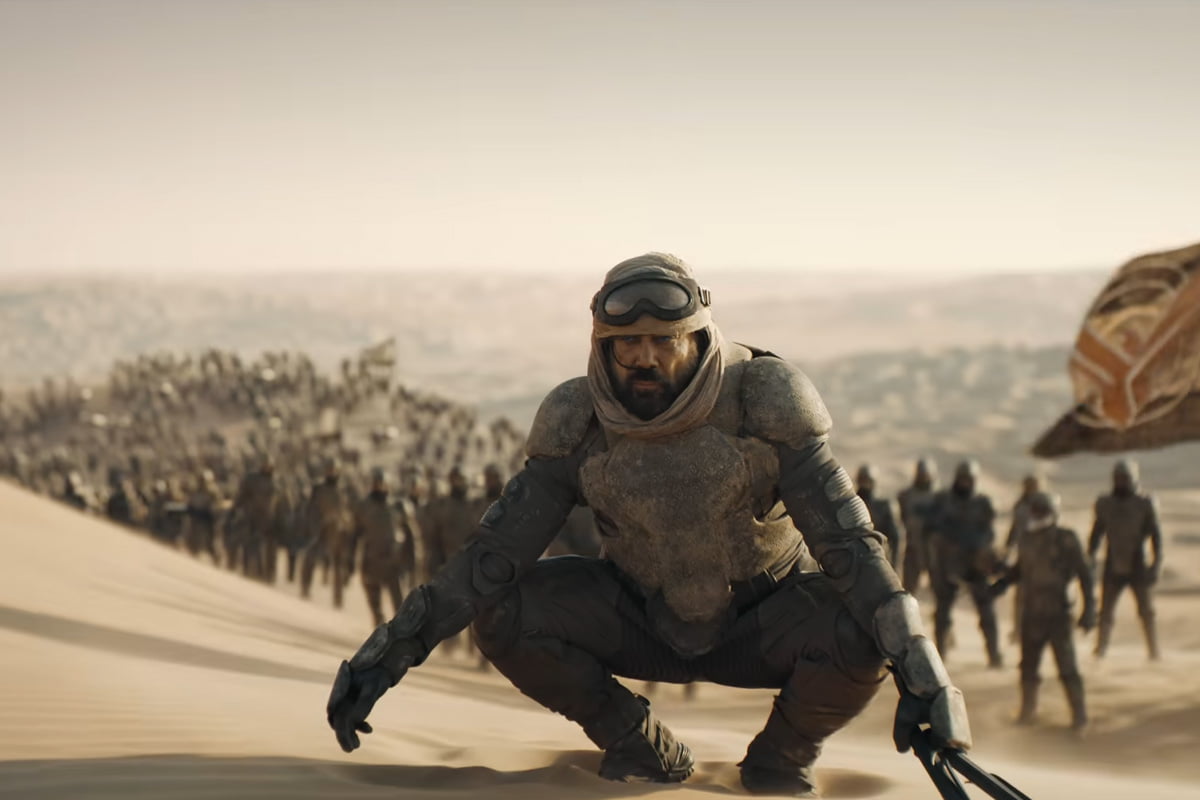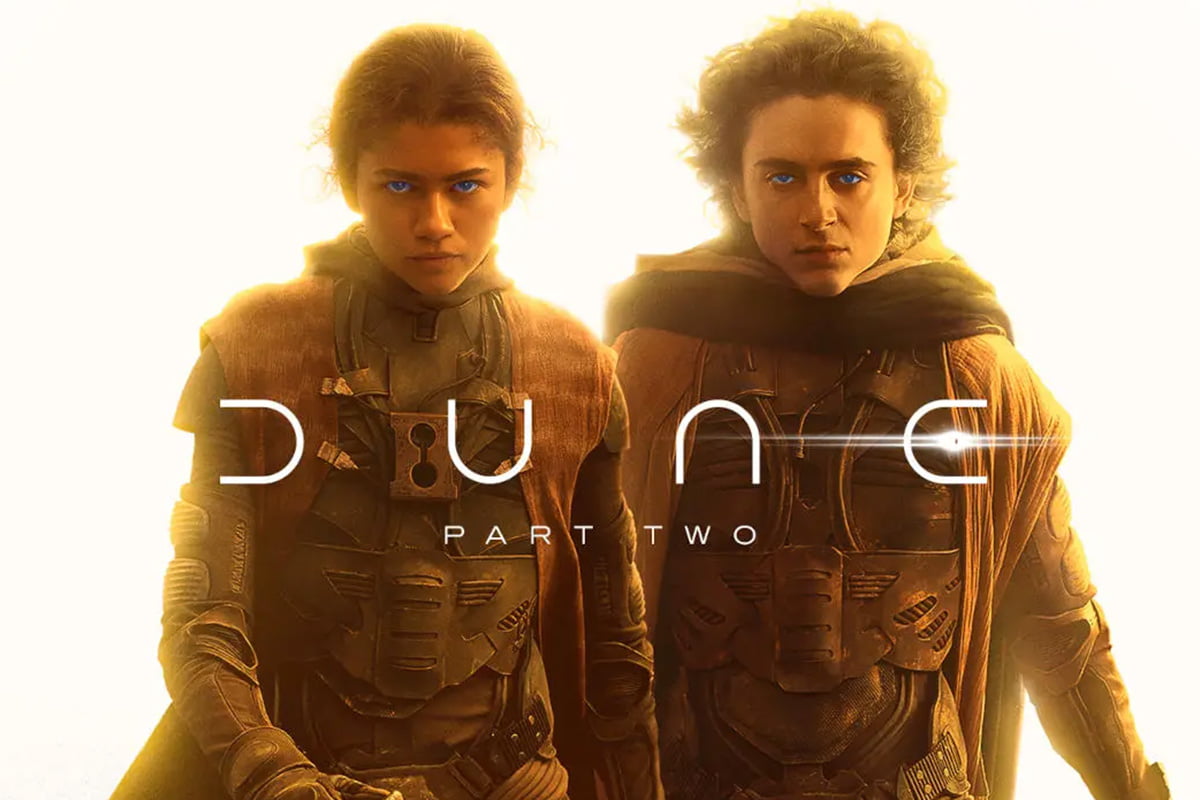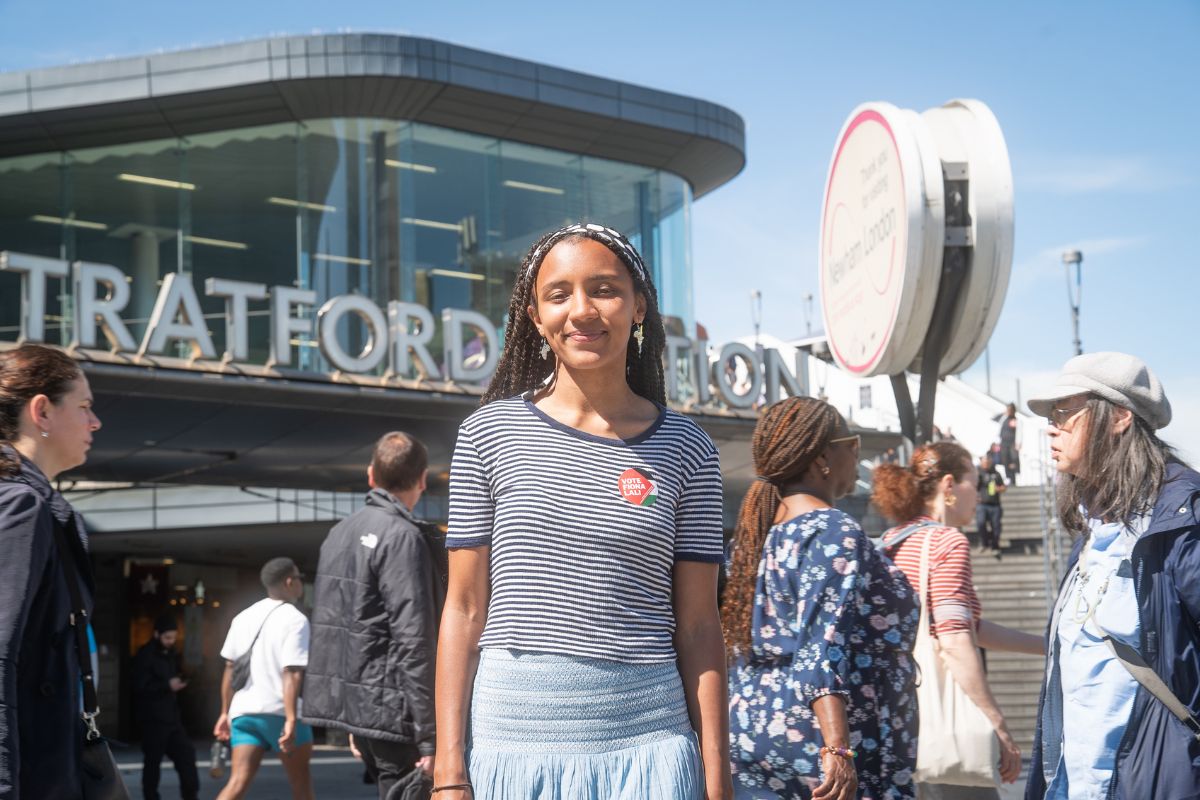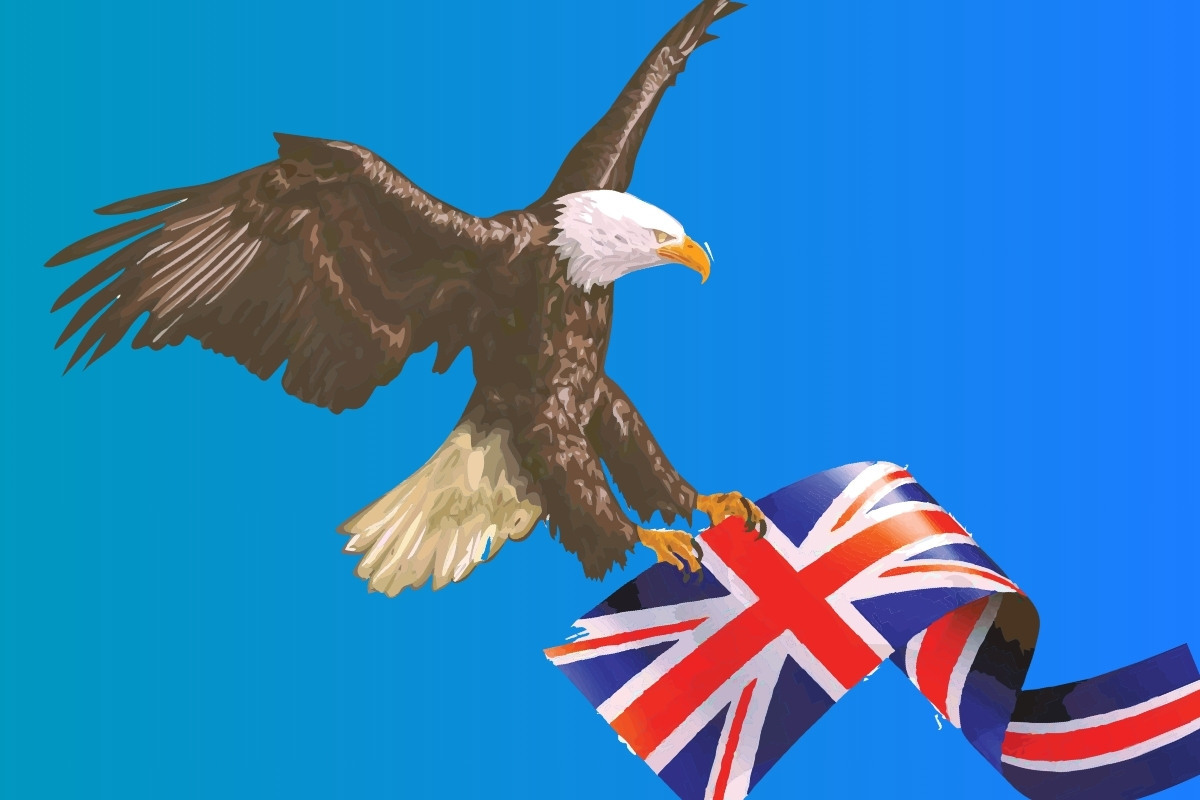Denis Villeneuve’s Dune: Part 2 is a cinematic masterpiece, showing the brutal reality of imperialism.
[WARNING: THIS REVIEW CONTAINS SPOILERS]
The film is an adaptation of Frank Herbert’s 1965 epic sci-fi novel. The plot follows Paul Atreides on the desert planet Arrakis, the source of the valuable commodity ‘spice’. Control of this resource is used by various galactic ruling factions to maintain power, including the capacity for interplanetary travel.
At the end of part one, we saw Paul ally with the colonised Arrakis natives, the Fremen, to wage war against their brutal, spice-hungry oppressors, the Harkonnens.
Dune: Part 2 begins with a thrilling, action-packed montage of uprising against the forces of imperialism. The Fremen, with Paul by their side, successfully blow up the means of spice production, shooting rockets at their murderous oppressors.
The film does not hold back from setting the scene with its depiction of Harkonnen brutality towards the Fremen. One harrowing scene, for example, shows the devastation of a Fremen holy site by a merciless bombing campaign.
What we see, at its core, is a fight between various powers over resources, ruthlessly played out on Arrakis land.
The parallels to our world today are clear.
Prophecy propaganda
 In Dune: Part 2, Paul’s mother, Jessica Atredies, takes steps to assimilate into the Fremen, and gain authority amongst them. She is made to drink ritual poison and survives, sparking talk of a coming messiah. And she begins to spread suggestions that Paul is this saviour.
In Dune: Part 2, Paul’s mother, Jessica Atredies, takes steps to assimilate into the Fremen, and gain authority amongst them. She is made to drink ritual poison and survives, sparking talk of a coming messiah. And she begins to spread suggestions that Paul is this saviour.
Paul is initially reluctant to play this role. He knows the prophecy was planted as propaganda, and will lead to a bloody holy war. Yet, in time, he also comes to embrace this lie.
The Southern Fremen accept Paul as their messiah. But the Northern Fremen resist. Led by Chani, they assert that Arrakis must be liberated by its own people. This opens up a schism in the Fremen movement that Paul, despite initially resisting, is catapulted to the head of.
As events unfold, it also becomes clear that Paul is increasingly utilising his messianic role for his own ends: not to liberate the Fremen, and billions of other oppressed people on Arrakis, but for his own ambition and revenge.
Rather than leading a genuine struggle for liberation, Paul cynically uses the Fremen’s wishes for freedom and a ‘green Arrakis’ to tip the scales in his favour – looking to upend the economic order so as to secure more power for House Atreides.
And whatever his intentions were to start, as the struggle progresses, Paul becomes more and more of a Bonapartist, reminiscent of Napoleon, as he attempts to lean on both sides and force himself to the top.
Themes
 As a book adaptation, despite significant adjustments to the plot, Dune holds firm. In fact, the changes made serve to bring out the central theme: be wary of ‘superheroes’ and ‘Chosen Ones’; history is not made by ‘Great Men’.
As a book adaptation, despite significant adjustments to the plot, Dune holds firm. In fact, the changes made serve to bring out the central theme: be wary of ‘superheroes’ and ‘Chosen Ones’; history is not made by ‘Great Men’.
To hammer this point home, Villeneuve goes beyond the outlines of the novel – particularly regarding the character of Chani, and the relationship between her and Paul.
In the book, she is Paul’s unrelenting supporter. In the film, by contrast, she is his foil; a voice of reason, and a representation of secular armed uprising as opposed to holy war.
Initially, Paul and Chani share a love and revolutionary vision. But in his quest for political domination, Paul turns his back on her.
This culminates with Paul taking the hand of a princess, playing the game of diplomatic monarchal marriage, and breaking both Chani’s heart and his promise to ‘stay himself’.
Triumph
Paul is no hero. And his intention was never to be one. The liberation of the Fremen from generations of brutal oppression – and the resulting blow struck against the interplanetary imperial regime – was not Paul’s aim, but only a side product of his personal quest for revenge.
The galactic implications and brutal consequences of Paul’s holy war are dealt with in the sequel, Dune: Messiah. The screenplay for this is still in the productioni process, however, so we may not see it for some time.
Those wanting more should therefore check out the books, which provide intricate dialogue alongside millennia-spanning lore, intertwining ecology, economy, politics, and prophecy.
In just its first week, Dune: Part 2 took in over $200 million, alongside receiving rave reviews.
Timothee Chalamet, Rebecca Fergeson, and Austin Butler all deliver great performances, while epic sci-fi cinematography – including enchanting wide shots and blood-pumping tracking shots – make for a great watch.
But the film’s popularity is not simply down to this. At the heart of Dune is a story about revolution against tyranny and oppression, which will no doubt strike a chord with audiences today.






